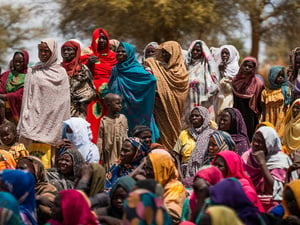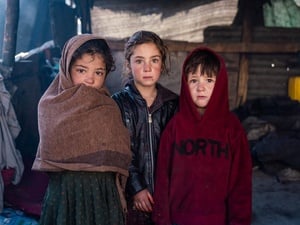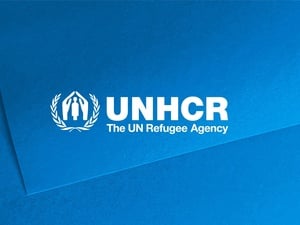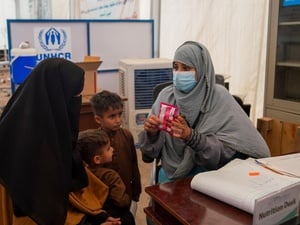UNHCR calls on Tokyo conference to remember the 3.5 million Afghan refugees
UNHCR calls on Tokyo conference to remember the 3.5 million Afghan refugees

Afghan refugees returning home from Pakistan late last year.
KABUL, Jan. 21 (UNHCR) - The United Nations High Commissioner for Refugees called Monday on representatives attending the two-day Afghan reconstruction conference in Tokyo to remember the acute needs of millions of returning refugees.
"One cannot speak of rebuilding Afghan society if millions of people who have been driven out of their homes are excluded," said Filippo Grandi, who heads the refugee agency's mission in Afghanistan.
"I hope the international community will not forget the refugees' reintegration needs and will target reconstruction aid not only to urban areas but also to rural villages so that people can finally return to their homes," Grandi added.
UNHCR estimates that there are some 3.5 million refugees living outside Afghanistan and more than 1.3 million displaced inside their homeland who fled years of conflict, drought and a shattered economy.
In the first day of the Tokyo conference Monday, the international community pledged $3.6 billion to rebuild Afghanistan, far less than the target of $10 billion over the next five years set by U.N. Secretary-General Kofi Annan. The U.N. chief told the conference that Afghanistan urgently needs $1.3 billion, including $736 million for humanitarian assistance.
"Only by providing immediate support can the country be stabilised in the short term, thereby setting the stage for long-term reconstruction," Annan said. "The true test, of course, is not how quickly we can pledge our help but whether we will make good on those pledges, whether we provide the aid that is desperately needed right now and whether we stay engaged for the long haul."
Since the fall of the Taliban regime in November 2001, at least 100,000 refugees have returned from neighbouring Pakistan and Iran and thousands of internally displaced families are beginning to head home, betting on peace in Afghanistan. But few can sustain their lives in the war-shattered country without substantive international assistance to recover the devastated infrastructure, farmland and employment.
This year, UNHCR is preparing for a return and reintegration programme designed to help hundreds of thousands of returning refugees and internally displaced people. The agency plans to provide transport assistance, initial aid packages and shelter assistance, as well as supporting quick-impact projects to help revive communities.
"We will do our best to help the returning Afghans, but there is a limit to what the humanitarian aid can do," Grandi said.
"The challenge is to build a bridge between the immediate humanitarian aid efforts and development agencies' longer-term reconstruction assistance, so that many of the educated and skilled refugees can be incorporated into the society and contribute to the future of Afghanistan," he said.
UNHCR moved its operational headquarters for Afghanistan back to Kabul over the weekend, ending its nearly 10-year exile in Islamabad, Pakistan. After the temporary withdrawal of international staff for nearly three months beginning last September, the agency's five regional offices in Kabul, Mazar-i-Sharif, Herat, Kandahar and Jalalabad have now all resumed operation.
It also plans to expand its presence in Afghanistan this year, including establishing 22 field offices to help returnees in remote communities. But the volatile security situation continues to hamper humanitarian aid operations in many parts of the country.









